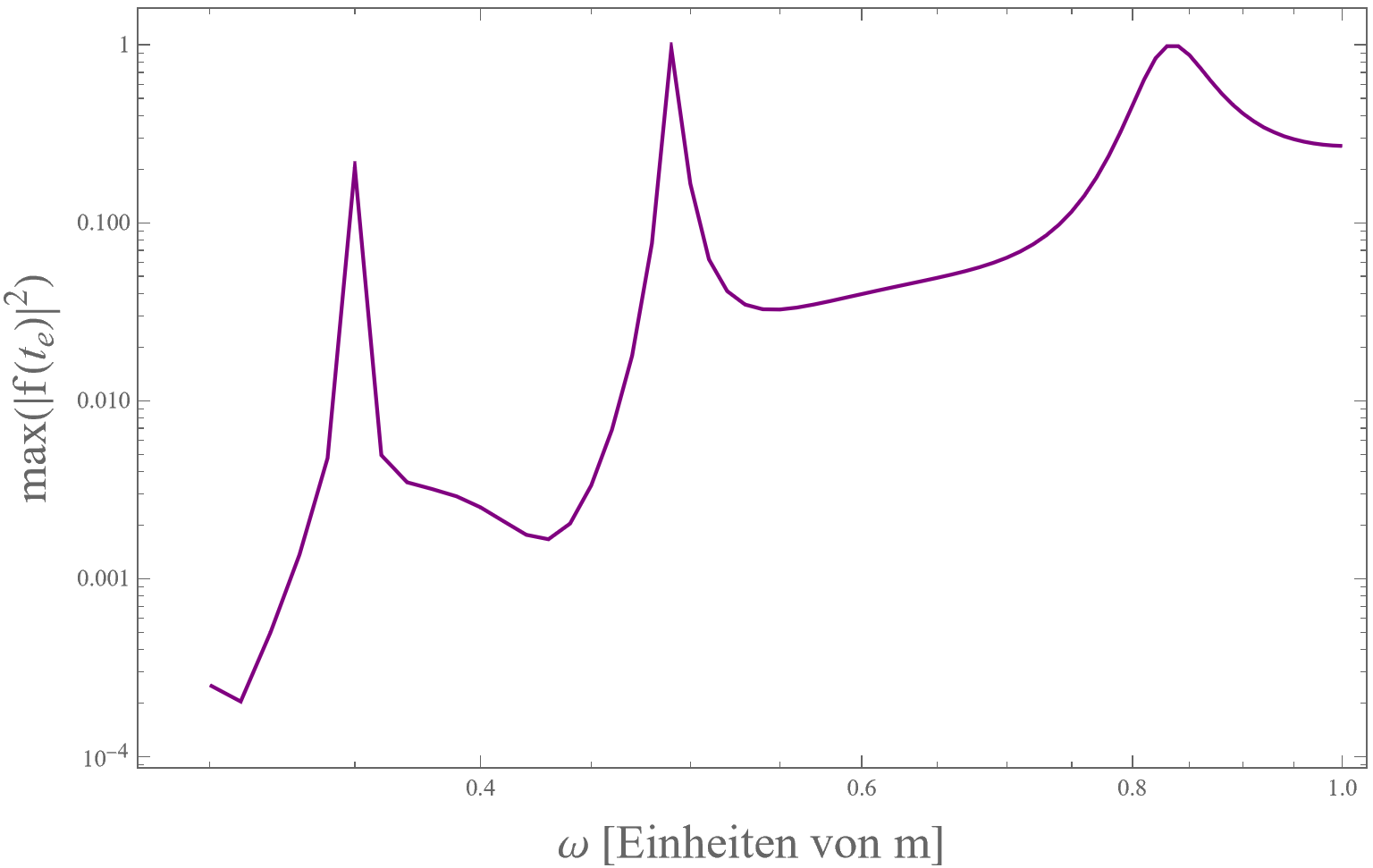I am using a Mac Book with Monterey and 16GB RAM for a calculation with 2 nested For loops. I am relatively new to Mathematika and still trying to learn the language properly, so I hope the problem is relatively small.
Edit: The Code
Liste2 = {};
For[\[Omega] = 0.3, \[Omega] <= 1, \[Omega],
{Liste = {},
\[Omega] = \[Omega] + 0.01,
\[Lambda] = 2*Pi/\[Omega],
{For[Nz = 0, Nz <= 150, Nz++,
{F[t_] :=
Piecewise[{{2*t/\[Lambda],
0 < t <= \[Lambda]/2}, {1, \[Lambda]/2 <
t <= \[Lambda]*(Nz + 1/2)}, {-2/\[Lambda]*t +
2*(Nz + 1), \[Lambda]*(Nz + 1/2) <
t <= \[Lambda]*(Nz + 1)}}, 0],
{xsol, ysol} =
NDSolveValue[{x'[t] == -Sin[\[Omega]*t]*Exp[2*I*t]*F[t]*y[t],
y'[t] == Sin[\[Omega]*t]*F[t]*Exp[-2*I*t]*x[t], x[0] == 0,
y[0] == 1}, {x, y}, {t, 0, 10000}],
fabs2[t_] := Re[xsol[t]*Conjugate[xsol[t]]],
Wert = fabs2[10000],
AppendTo[Liste, {Wert}],
(*Print[{\[Omega],Max[Liste]}],*)
max = Max[Liste]
}]
},
AppendTo[Liste2, {\[Omega], max}]}]
(*Print[Liste2]*)
ListLogLogPlot[Liste2, Joined -> True, PlotTheme -> "Scientific",
FrameLabel -> {Style["\[Omega] [Einheiten von m]", 20],
Style["max(|f(\!\(\*SubscriptBox[\(t\), \
\(e\)]\))\!\(\*SuperscriptBox[\(|\), \(2\)]\))", 20]},
ImageSize -> Large, PlotStyle -> {Purple}]

